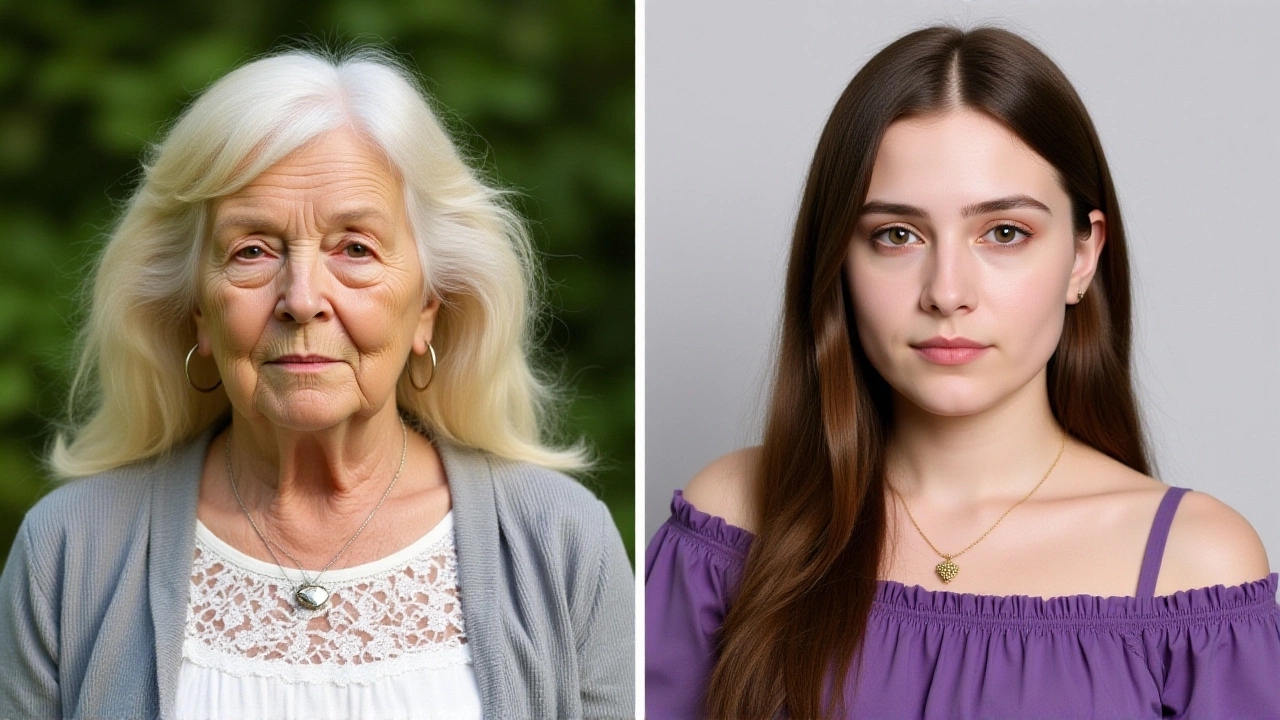She walked up to Kate McCann’s front door on a cold December evening in 2024, looked her in the eye, and said, 'I know you loved me.' Julia Wandelt, a 24-year-old woman from Lubin, Poland, didn’t come to demand money or publicity. She came because she genuinely believed she was Madeleine McCann—the little girl who vanished from a Portuguese holiday resort on May 3, 2007, and became one of Britain’s most haunting unsolved mysteries. On October 27, 2025, after a tense two-week trial at Leicester Crown Court, Wandelt was acquitted of all stalking charges. The jury didn’t believe she was manipulating the McCanns. They believed she was broken.
The Visit That Shook a Family
On December 7, 2024, Wandelt appeared unannounced at the McCanns’ home in Rothley, Leicestershire. She didn’t knock. She waited. When Kate McCann opened the door, Wandelt spoke softly: “I know you loved me.” No threats. No demands. Just those six words, heavy with grief, confusion, and a lifetime of unanswered questions. The moment was captured in court testimony, and it left even prosecutors visibly shaken. Kate McCann, a general practitioner who has spent nearly two decades searching for answers about her daughter, later said she felt “a chill I can’t explain.”Wandelt’s visit wasn’t random. She had tried to reach the McCanns for months—sending emails, leaving voicemails, even attending the annual vigil for Madeleine in Praia da Luz. When those failed, she went to their house. Twice. The first visit, in May 2024, was brief. The second, in December, was the one that triggered the police investigation.
A Life Built on Silence
Wandelt’s story, laid bare in court, wasn’t the script of a hoaxer. It was the raw testimony of someone whose childhood had been erased. She told jurors she remembered almost nothing before age seven—just pain. Abuse, she said, at the hands of her step-grandfather. She attempted suicide. She cut herself. She spent years in therapy, trying to piece together who she was. Then, in 2022, her father dropped a bombshell: “He was involved in kidnapping.”That single sentence sent her spiraling into missing persons databases. She searched for children who vanished around the same time, who looked like her, who were the same age. Madeleine McCann was one of only a handful who matched. Same hair color. Same build. Same year of birth. “I didn’t find her,” Wandelt told the jury. “I found myself in her.”
Her social media posts—side-by-side photos of her and Madeleine, comparisons of facial features, even a video of her holding a stuffed bear similar to one Madeleine was last seen with—weren’t attempts at fraud, she insisted. They were desperate cries for validation. “My friends remember birthday parties,” she said. “I remember being locked in a closet. How do you explain that?”

The McCanns’ Quiet Suffering
For the McCanns, this wasn’t just another bizarre claim. It was another layer of trauma. Gerry McCann, a consultant orthopedic surgeon, had spent years fighting conspiracy theories, media frenzy, and false leads. Now, a stranger—someone who clearly suffered—was standing on their doorstep, claiming to be their daughter. Amelie McCann, Madeleine’s younger sister, testified that she received a message from Wandelt on Instagram in January 2024. “I didn’t think it was criminal,” Amelie said. “I just thought if I ignored it, it would go away. I didn’t want to add more pain to my parents.”The prosecution argued Wandelt’s actions were deliberate and invasive. They pointed to her repeated contacts, her visits to the home, and her social media posts as evidence of stalking. But the defense, led by Tom Price KC, painted a different picture: a woman with severe dissociative disorder, trauma-induced identity confusion, and no intent to harm—only to understand.
Why the Acquittal Made Sense
The jury didn’t need to believe Wandelt was Madeleine McCann. They only needed to believe she believed it. And the evidence, from her childhood medical records to her psychiatric evaluations, supported that. One psychologist testified that Wandelt’s memory gaps were consistent with severe childhood trauma, not fabrication. Another noted her “profound existential distress” around identity—a condition sometimes seen in survivors of institutional abuse.“This wasn’t a case of a fraudster exploiting grief,” said Dr. Eleanor Hart, a forensic psychologist not involved in the case but who reviewed the evidence. “It was a case of grief exploiting someone who had none left of her own.”
The verdict—acquittal on all charges—was delivered on October 27, 2025. Wandelt wept in the dock. Kate McCann, watching from the public gallery, didn’t. She simply nodded, once. Later, in a brief statement, she said: “My heart breaks for her. But it breaks more for Madeleine. And for all the families who still wait.”

What This Means for Missing Persons Cases
The case has sent ripples through child protection and mental health circles. Over the past 18 years, more than 30 people have claimed to be Madeleine McCann. None had Wandelt’s depth of trauma. None had the psychological profile to suggest they weren’t acting out of delusion. Her acquittal doesn’t mean the McCanns’ pain is less real. But it forces a harder question: When does someone’s mental illness become a legal defense—and when does society have a duty to heal, not punish?Wandelt is now under court-ordered psychiatric care in Poland. She has no plans to return to the UK. The McCanns have asked for privacy. But the case won’t fade. It’s a haunting reminder that some disappearances don’t just leave families searching—they leave others lost, too.
Frequently Asked Questions
Was Julia Wandelt ever confirmed to be Madeleine McCann?
No. DNA testing conducted by Portuguese authorities in 2007 and later by UK forensic teams confirmed Madeleine McCann’s biological identity through her parents. Wandelt’s genetic profile did not match the McCann family. The court never ruled on her claim of identity—only on whether her actions constituted stalking. Her belief in being Madeleine was treated as a symptom of trauma, not fact.
Why didn’t the prosecution prove intent to stalk?
Under UK law, stalking requires proof that the accused knew or should have known their behavior was causing distress. The defense successfully argued Wandelt didn’t understand her actions were intrusive because she believed she was reuniting with her true family. Psychiatric evaluations showed she lacked the capacity to distinguish between delusion and reality in this context, undermining the prosecution’s claim of malicious intent.
How common are cases like this involving missing persons?
Since the 1990s, over 200 people worldwide have claimed to be missing children, including Madeleine McCann, JonBenét Ramsey, and others. Most are diagnosed with dissociative disorders, delusional disorders, or trauma-induced identity confusion. Only a handful have faced criminal charges. The majority are referred to mental health services, not courtrooms—making Wandelt’s case unusually rare and legally significant.
What happened to Julia Wandelt after the trial?
Following her acquittal, Wandelt was placed under a court-ordered mental health treatment plan in Poland, supervised by the Lubin Regional Psychiatric Center. She is receiving long-term trauma therapy and is not permitted to travel to the UK without prior approval from a UK court. Her family has requested anonymity, and no public updates have been released since her discharge from court custody in November 2025.
Did the McCanns ever consider she might be telling the truth?
According to court documents, the McCanns never entertained the possibility that Wandelt was their daughter. They relied on forensic evidence, timeline consistency, and medical records. However, Kate McCann did express profound sadness for Wandelt’s suffering during the trial. In a private letter to the judge, she wrote: “I wish she had found peace without coming to us. I wish someone had helped her before she thought we were her parents.”
Could this happen again with other missing children cases?
Yes. High-profile disappearances like Madeleine’s create a psychological vacuum where people with deep trauma sometimes project their own pain onto the narrative. Experts warn that as long as media coverage remains intense and unresolved, vulnerable individuals may latch onto these stories. The Wandelt case may prompt new guidelines for how law enforcement and mental health services respond to such claims—not as crimes, but as crises.
